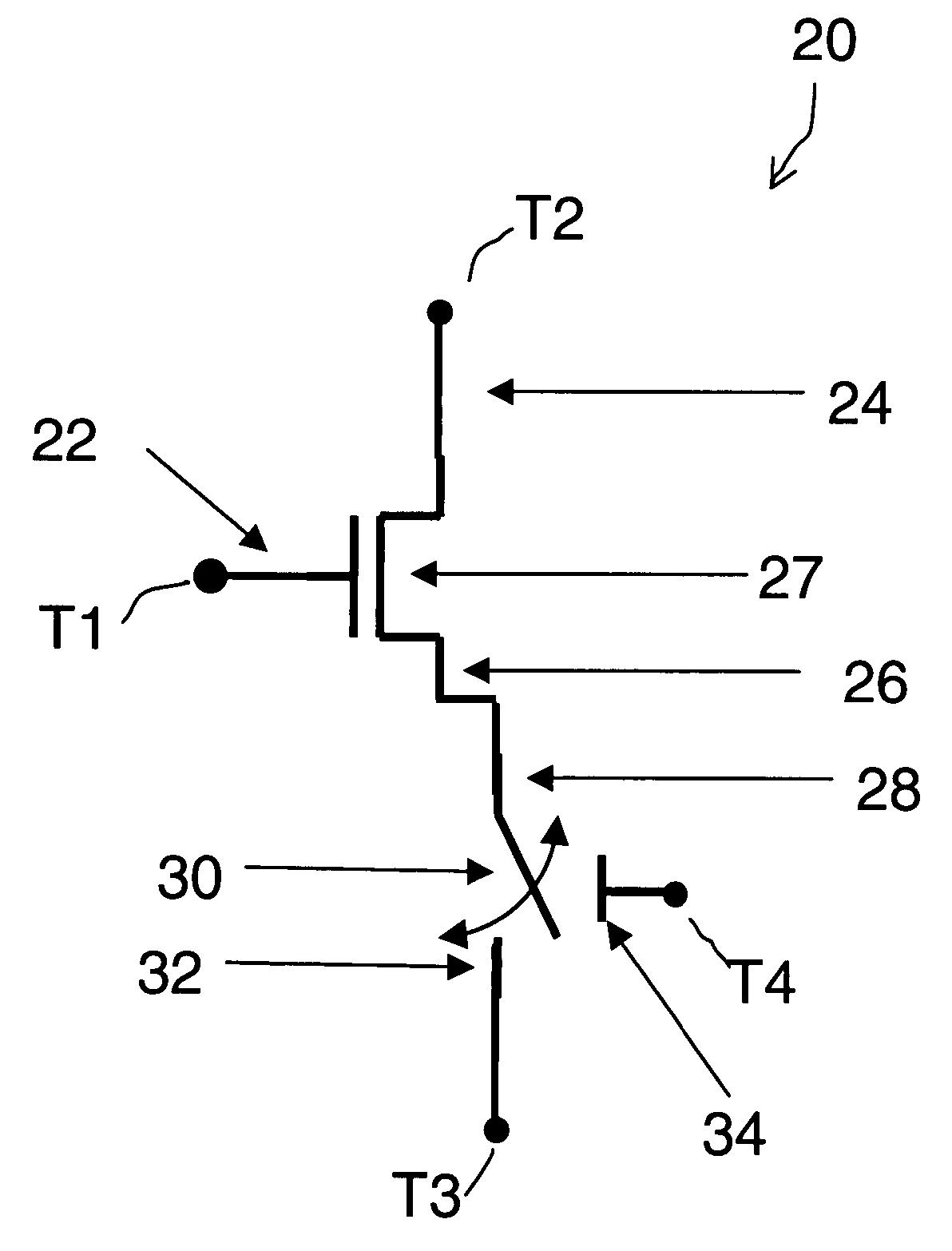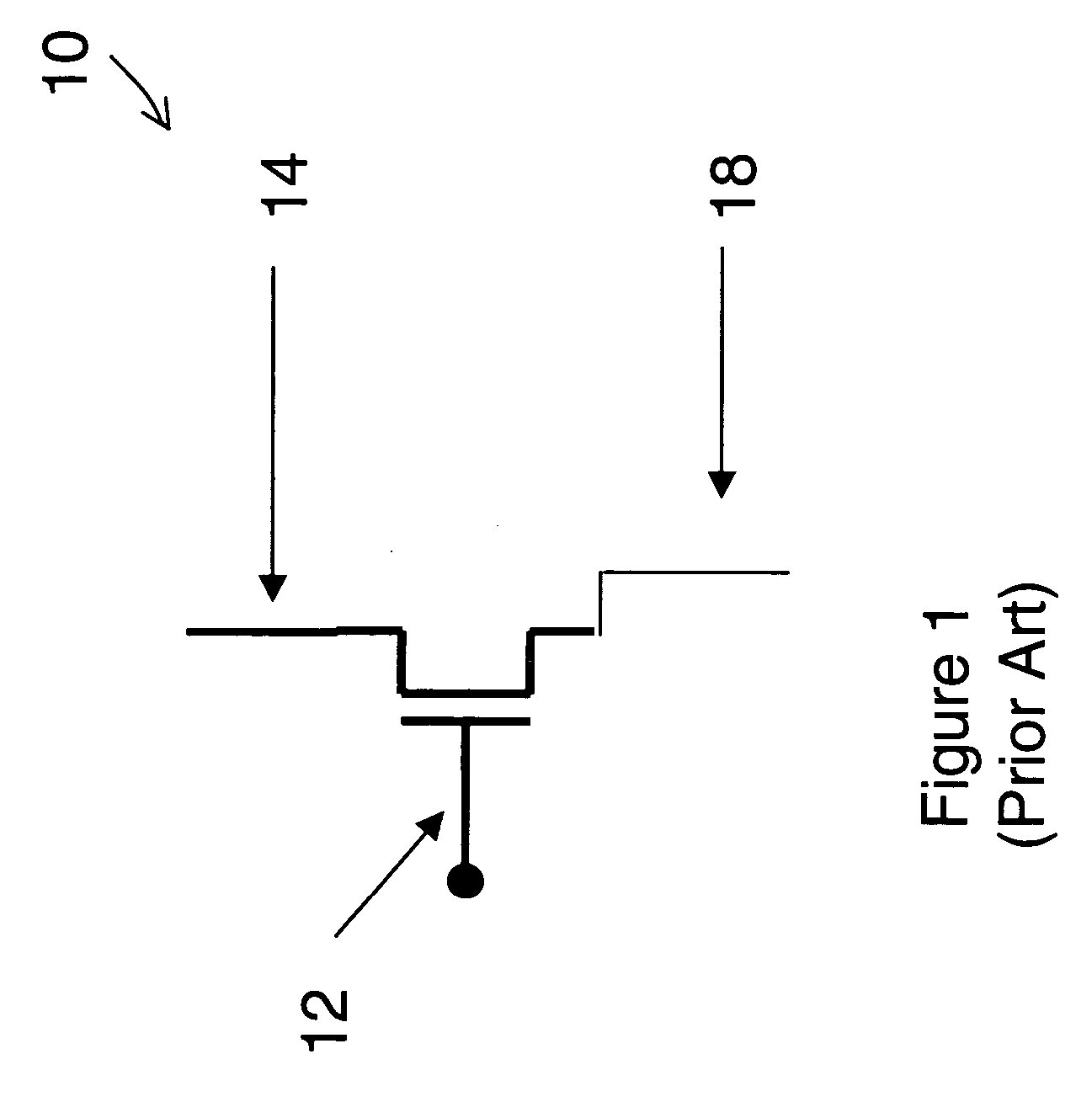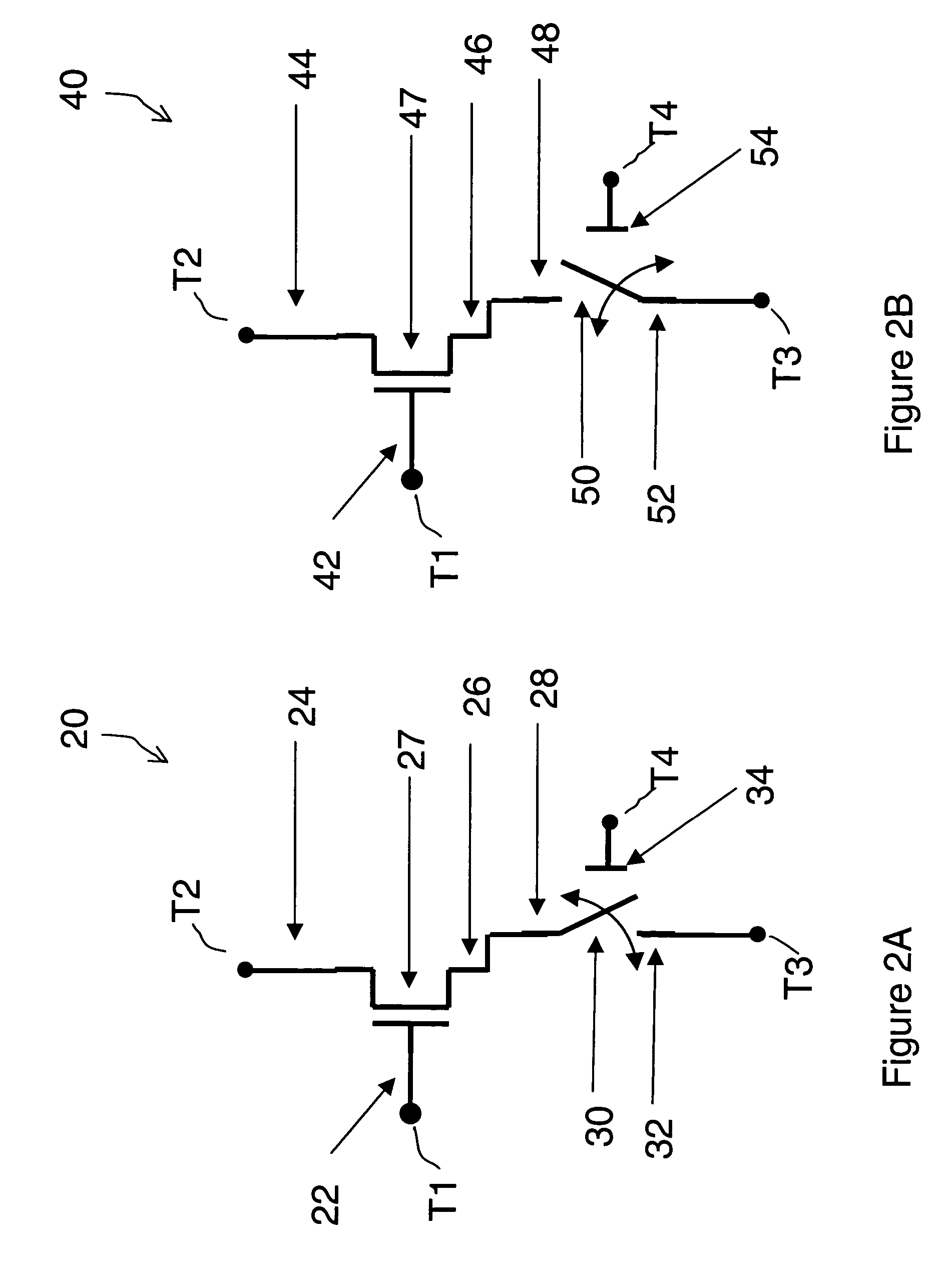Non-volatile electromechanical field effect devices and circuits using same and methods of forming same
a field effect device and electromechanical field effect technology, applied in the field of non-volatile electromechanical field effect devices and circuits using same and methods of forming same, can solve the problems of long write cycle (ms), low relative speed in comparison to dram or sram, and relatively low cost of rom but inability to be rewritten
- Summary
- Abstract
- Description
- Claims
- Application Information
AI Technical Summary
Benefits of technology
Problems solved by technology
Method used
Image
Examples
Embodiment Construction
[0106] Preferred embodiments of the invention provide a field effect device that acts like a FET in its ability to create an electronic communication channel between a drain and a source node, under the control of a gate node. However, the preferred field effect devices further include a separate control structure to non-volatilely control the electrical capabilities of the field effect device. More specifically, the control structure uses carbon nanotubes to provide non-volatile switching capability that independently control the operation of the drain, source, or gate node of the field effect device. By doing so, the control structure provides non-volatile state behavior to the field effect device. Certain embodiments provide non-volatile RAM structures. Preferred embodiments are scalable to large memory array structures. Preferred embodiments use processes that are compatible with CMOS circuit manufacture. While the illustrations combine NMOS FETs with carbon nanotubes, it should...
PUM
 Login to View More
Login to View More Abstract
Description
Claims
Application Information
 Login to View More
Login to View More - R&D
- Intellectual Property
- Life Sciences
- Materials
- Tech Scout
- Unparalleled Data Quality
- Higher Quality Content
- 60% Fewer Hallucinations
Browse by: Latest US Patents, China's latest patents, Technical Efficacy Thesaurus, Application Domain, Technology Topic, Popular Technical Reports.
© 2025 PatSnap. All rights reserved.Legal|Privacy policy|Modern Slavery Act Transparency Statement|Sitemap|About US| Contact US: help@patsnap.com



